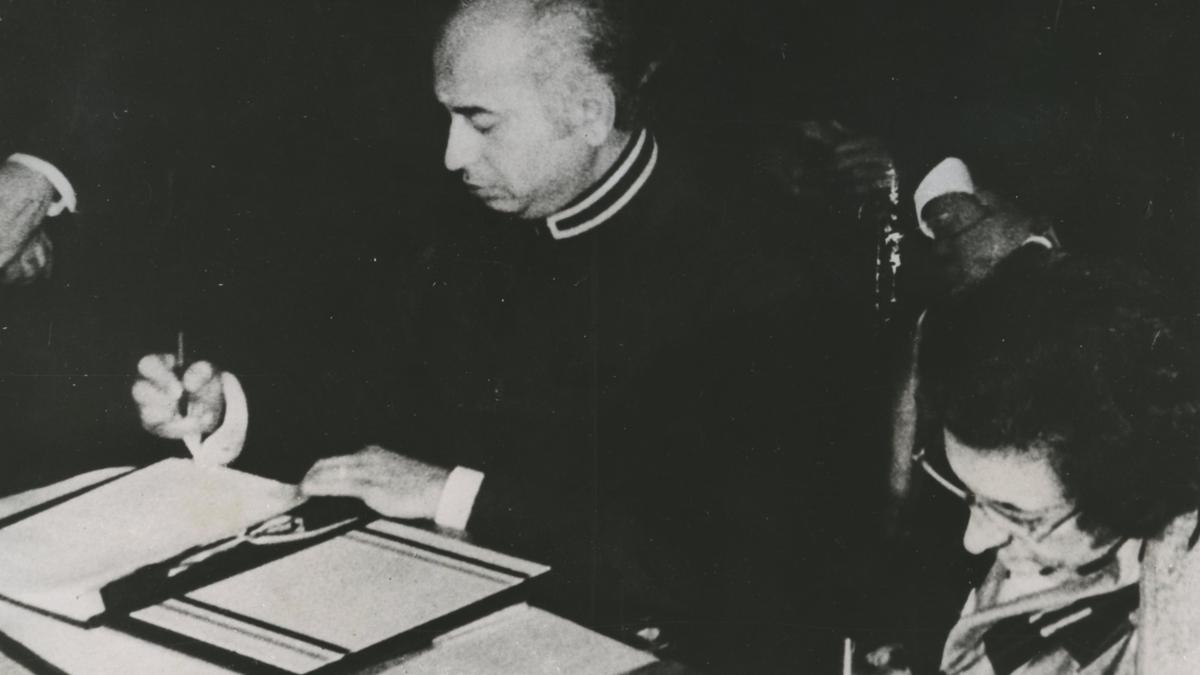
Britain’s Prime Minister Rishi Sunak. File
| Photo Credit: AP
Rishi Sunak has been Britain’s Prime Minister for a month. In the tumultuous world of U.K. politics in 2022, that’s an achievement.
Mr. Sunak, who took office a month ago Friday on October 25, has steadied the nation after the brief term of predecessor Liz Truss. Britain’s first Prime Minister of color, Mr. Sunak has stabilised the economy, reassured allies from Washington to Kyiv and even soothed the European Union after years of sparring between Britain and the bloc.
But Mr. Sunak’s challenges are just beginning. He is facing a slowing economy, a cost-of-living crisis — and a governing Conservative Party that is fractious and increasingly unpopular after 12 years in power.
Opinion polls have good news and bad news for Mr. Sunak. The public quite likes the 42-year-old former investment banker, but his party is another matter.
In a survey by pollster Ipsos, 47% of respondents said they liked the Prime Minister, while 41% disliked him.
“That’s definitely better than Boris Johnson was getting earlier this year,” said Gideon Skinner, Ipsos’ head of political research. But he said Mr. Sunak’s popularity “is not showing signs of rubbing off onto the Conservative Party brand.”
In the same survey the Conservative Party was liked by just 26%, and disliked by 62% — the worst figures for the party in 15 years. The Ipsos phone survey of 1,004 adults is considered accurate to within plus or minus 4% points.
Many voters welcome Mr. Sunak as a change from Ms. Truss and her predecessor Mr. Johnson, who quit in July after three scandal-plagued years in office. But the party has been in power since 2010, making it hard for Conservatives to avoid blame for the country’s financial woes.
Lingering allegations of misconduct also are tarnishing its image. On Wednesday, Mr. Sunak appointed a senior lawyer to investigate allegations of bullying against his deputy Prime Minister, Dominic Raab.
It’s not impossible for the Conservatives to rebuild their popularity before the next election, due by the end of 2024. But it won’t be easy. Current polls suggest the Labour Party would win handily.
At the height of the coronavirus pandemic Mr. Sunak, then Britain’s treasury chief, gained popularity by spending billions to support shuttered businesses and pay the salaries of furloughed workers.
Now he has to deliver bitter medicine. Britain’s economy is being weighed down by the pandemic, Brexit and especially Russia’s invasion of Ukraine, which has driven global energy prices sky-high.
Millions of people in Britain have seen energy bills soar, though a government-imposed cap has prevented even higher prices. Pandemic-related backlogs and staff shortages have caused record waiting times for health care in Britain’s National Health Service.
The situation was made worse by Ms. Truss’ ill-advised September package of unfunded tax cuts, which torpedoed the U.K.’s reputation for economic prudence, weakened the pound, drove up the cost of borrowing, and triggered emergency central bank intervention. Ms. Truss resigned last month after less than two months in the job.
“I fully appreciate how hard things are,” Mr. Sunak said in his first address to the nation on October 25, warning of “difficult decisions to come.”
An emergency Budget last week helped buoy the pound and calm markets — at the cost of 25 billion pounds ($30 billion) in tax hikes and the prospect of public spending cuts down the road.
The Organization for Economic Cooperation and Development forecast this week that the U.K. economy will shrink by 0.4% in 2023 and grow by just 0.2% in 2024, the worst outlook among Group of Seven industrialized countries.









![Best Weight Loss Supplements [2022-23] New Reports!](https://technologytangle.com/wp-content/uploads/2022/12/p1-1170962-1670840878.png)




